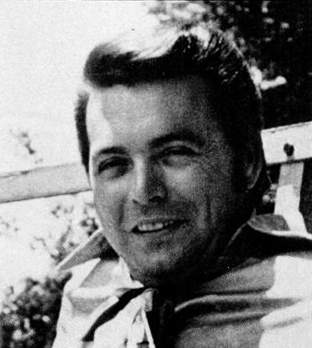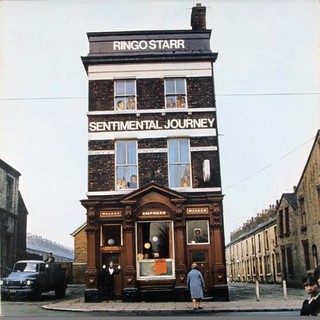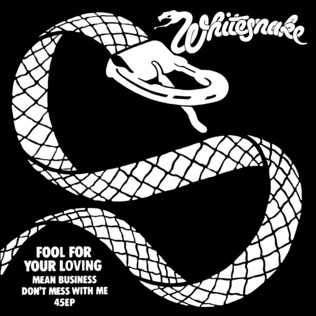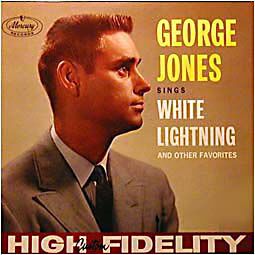
Norah Jones is an American singer-songwriter and musician. She has won several awards for her music and, as of 2023, had sold more than 50 million records worldwide. Billboard named her the top jazz artist of the 2000s decade. She has won nine Grammy Awards and was ranked 60th on Billboard magazine's artists of the 2000s decade chart.

George Glenn Jones was an American country musician, singer, and songwriter. He achieved international fame for a long list of hit records, and is well known for his distinctive voice and phrasing. For the last two decades of his life, Jones was frequently referred to as "the greatest living country singer", "The Rolls-Royce of Country Music", and had more than 160 chart singles to his name from 1955 until his death in 2013.

Sonia Evans, known mononymously as Sonia, is an English pop singer from Liverpool. She had a 1989 UK number one hit with "You'll Never Stop Me Loving You" and became the first female UK artist to achieve five top 20 hit singles from one album. She represented the United Kingdom in the 1993 Eurovision Song Contest, where she finished second with the song "Better the Devil You Know".

Lee Ann Womack is an American country music singer and songwriter. She has charted 23 times on the American Billboard Hot Country Songs charts; her highest peaking single there is her crossover signature song, "I Hope You Dance". Five of her singles made top 10 on the country music charts of the defunct RPM magazine in Canada.

Aaron Joseph Neville is an American R&B and soul singer. He has had four platinum albums and four Top 10 hits in the United States, including three that reached number one on Billboard's Adult Contemporary chart. "Tell It Like It Is", from 1966, also reached the top position on the Soul chart for five weeks.
Helen Terry is a British singer and television producer, known for her backing vocal work with Culture Club. As a solo performer, she scored a Top 40 hit single in 1984 with "Love Lies Lost", and released one album in 1986, Blue Notes.

Mickey Leroy Gilley was an American country music singer and musician. Although he started out singing straight-up country and western material in the 1970s, Gilley moved towards a more pop-friendly sound in the 1980s, bringing him further success on not just the country charts, but the pop charts as well.

Sentimental Journey is the debut solo album by the English rock musician Ringo Starr. It was released by Apple Records in March 1970 as the Beatles were breaking up. The album is a collection of pre-rock 'n' roll standards that Starr recalled from his childhood in Liverpool. As a departure from the experimental quality that had characterised solo LPs by George Harrison and John Lennon since 1968, it was the first studio album by an individual Beatle to embrace a popular music form.

"Don't Know Why" is a song written and composed by Jesse Harris that originally appeared on his 1999 album, Jesse Harris & the Ferdinandos. A cover of the song was the debut single of American singer Norah Jones from her debut studio album, Come Away with Me (2002).

One Woman Man is an album by American country music artist George Jones, released on February 28, 1989, on Epic Records.

"Fool for Your Loving" is a song recorded by English rock band Whitesnake. Originally released on their 1980 album Ready an' Willing, it was re-recorded for their 1989 album Slip of the Tongue.
"What Kind of Fool Am I?" is a popular song written by Leslie Bricusse and Anthony Newley and published in 1962. It was introduced by Anthony Newley in the musical Stop the World – I Want to Get Off. It comes at the end of Act Two to close the show. Bricusse and Newley received the 1961 Ivor Novello award for Best Song Musically and Lyrically. At the 1963 Grammy Awards, it won the award for Song of the Year and was the first by Britons to do so.

Melba Joyce Montgomery is an American country music singer and songwriter. She is known for a series of duet recordings made with George Jones, Gene Pitney and Charlie Louvin. She is also a solo artist, having reached the top of the country charts in 1974 with the song, "No Charge". Born in Tennessee but raised in Alabama, Montgomery had a musical upbringing. Along with her two brothers, she placed in a talent contest which brought her to the attention of Roy Acuff. For several years she toured the country as part of his band until she signed with United Artists Records in 1963.

A Picture of Me (Without You) is an album by American country music singer George Jones. It was released in 1972 on the Epic Records label. The release was Jones' 47th studio album, his second solo LP for Epic Records, and is also one of four albums released by the singer during the year 1972 (two as a solo artist, and two duet albums with his wife Tammy Wynette) as producer Billy Sherrill wasted no time in flooding the market with new recordings by "the Possum". Jones's first album, George Jones (We Can Make It), made it to number 10 on the country albums charts but his second effort did better, rising to number three and featuring songs with a wider range of themes than those found on his Epic debut, which celebrated the happiness of new love. The album's title track was the only single release from it, peaking at #5 on the Billboard country singles charts.

I'll Share My World with You is an album by American country music artist George Jones. This album was released in 1969 on the Musicor Records label. Tammy Wynette, who married Jones that year, is pictured on the cover.

White Lightning and Other Favorites is a studio album released by George Jones on May 26, 1959. Its title track "White Lightning" was a #1 Country hit in 1959.

"Give Me the Night" is a song recorded by American jazz and R&B musician George Benson, which he released from his 1980 studio album of the same title. It was written by Heatwave's keyboard player Rod Temperton and produced by Quincy Jones. Patti Austin provides the backing and scat vocals that are heard throughout, and one of Benson's fellow jazz guitarists, Lee Ritenour, also performs on the track.

The discography of American country artist, Melba Montgomery contains 29 studio albums, eight compilation albums, 61 singles, one other charting song and has appeared on five albums. Of her studio albums, 22 are solo releases while seven are collaborative releases. Of her singles, 42 are solo releases while 18 are collaborative. Montgomery collaborated with George Jones on 1963's "We Must Have Been Out of Our Minds", which reached number three on the Billboard Hot Country Songs chart. Together, they recorded several studio albums including What's in Our Heart (1963), which reached number three on the Billboard Top Country Albums chart. The United Artists and Musicor labels issued several more singles by the pair. Among them were the top 25 songs "Multiply the Heartaches" (1965) and "Party Pickin'" (1967). She also collaborated with Gene Pitney during the sixties on the top 20 single "Baby Ain't That Fine" (1965). Both United Artists and Musicor issued several solo studio albums and singles by Montgomery during the sixties also. Among them was the charting single "Hall of Shame" (1963) and the 1967 LP, Don't Keep Me Lonely Too Long (1967).

The singles discography of American country artist, George Jones, contains 182 singles. Of the total, 136 were released with Jones as the solo artist. In addition, 31 were issued with Jones being part of a collaboration. Thirdly, eight singles were issued with Jones being part of a featured act. Fourthly, seven released were promotional singles. Additionally, 14 songs that are not released as singles are included that made any major chart. Finally, 21 music videos which were first issued as singles are also listed. Jones had his first chart success in 1955 with several top ten Billboard Hot Country Songs singles: "Why Baby Why", "What Am I Worth" and "You Gotta Be My Baby". After several more top ten releases, "White Lightning" became his first to top the Billboard country chart. Along with "Who Shot Sam", both singles were also his first to make the Hot 100 charts.
"My Tears Are Overdue" is a song by American country music artists George Jones. Composed by Freddy Hart, it was released as the B-side to "You're Heart Turned Left " and rose to #15 on the Billboard country singles chart. Although not a major hit, the song displays the virtuoso vocal talents that made the Texan one of the most respected singers in the business. Jones was so hot on the charts in the early 1960s that several of his B-sides charted, including "Sometimes You Just Can't Win," "Big Fool of the Year," and "What's in Our Heart", and even hit the bottom of the pop charts with "Ain't It Funny What a Fool Will Do."














